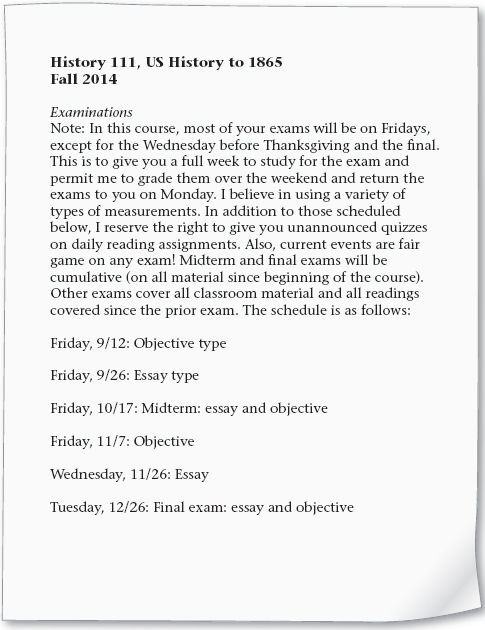Preparing for Tests and Exams
Believe it or not, you actually begin preparing for a test on the first day of the term. Your lecture notes, assigned readings, and homework are all part of that preparation. As the test day nears, you should know how much additional time you will need for review, what material the test will cover, and what format the test will take. It is very important to double-check the exam dates on the syllabus for each class, as in Figure 9.1, and to incorporate these dates into your overall plans for time management, such as in your daily and weekly to-do lists.
FIGURE 9.1 Exam Schedule from Sample Course Syllabus

Here are some specific suggestions to help you prepare well for any exam:
177
178
- Ask your instructor. Find out the purpose, types of questions, conditions (how much time you will have to complete the exam), and content to be covered on the exam. Talk with your instructor to clarify any misunderstandings you might have about your reading or lecture notes. Some instructors might let you view copies of old exams so that you can see the types of questions they use. Never miss the last class before an exam because your instructor might summarize valuable information then.
- Manage your preparation time wisely. Create a schedule that will give you time to review effectively for the exam without waiting until the night before. Make sure that your schedule has some flexibility to allow for unexpected distractions. If you are able to spread your study sessions over several days, your mind will continue to process the information between study sessions, which will help you during the test. Also, let your friends and family know when you have important exams coming up and how that will affect your time with them.
- Focus your study. Figure out what you can effectively review that is likely to be on the exam. Collaborate with other students to share information and try to attend all test or exam review sessions offered by your instructor.
[Leave] [Close]